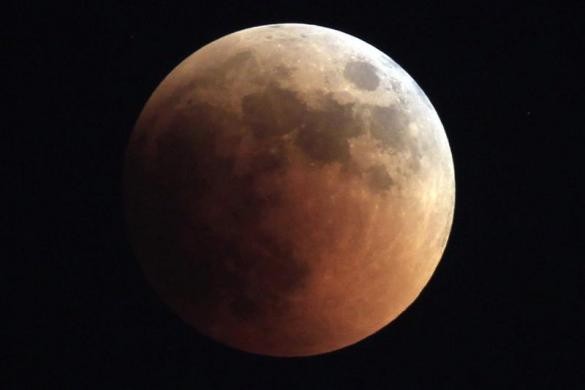
The first partial lunar eclipse of 2013, the third shortest eclipse of the 21st century, will occur on Thursday night. The April full moon, called as the "pink" full moon, will pass through Earth's shadow in a partial lunar eclipse, according to Space.com.
The first lunar eclipse of this year will be easily visible to observers in Asia, Australia, Europe, Africa and Antarctica. But unfortunately it won't be seen in North America, since the actual instant of the full moon occurs on Thursday afternoon when the moon is below the horizon.
However, US stargazers can watch the celestial event live online. It is the first, and likely the best, of three lunar eclipses that will occur this year. The other two will be seen on 25 May during Full Flower Moon and on 18 October during Full Hunters' Moon.
You can watch the event live on Space.com courtesy of two webcasts provided by the US-based Slooh Space Camera and Italy's Virtual Telescope Project.
(Note: the live streaming events of both the webcasts depend on good weather at the observing sites).
The first webcasts will be provided by the Slooh Space Camera that will start at around 3 pm EDT (1900 GMT). Solar scientist Lucie Green based at the Mullard Space Science Laboratory in the UK will then join Slooh's broadcast team and feature views from the company's observatory on the Canary Islands, off the west coast of Africa. One can also check Slooh's website http://www.slooh.com.
The second webcast will be provided by the Virtual Telescope Project and it will begin after Slooh's broadcast at 3.30 pm EDT (1930 GMT). Space.com will carry it live or it can be watched directly on the website at http://www.virtualtelescope.eu/webtv/.
The celestial phenomenon will begin at 11:32 pm on Thursday night and last till 3:43 am on Friday.
"A tiny sliver of the Moon will be covered by the Earth's umbral shadow at maximum of the partial lunar eclipse," N Sri Raghunandan Kumar of Planetary Society of India told PTI.
The visible Umbra phase will start at 1:22 am and will last till 1:53 am in India. The event will last only for 27 minutes, the third shortest eclipse of the century.









